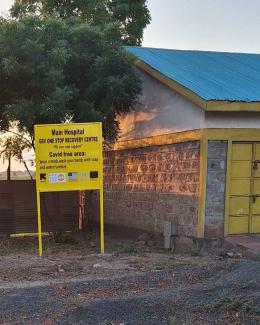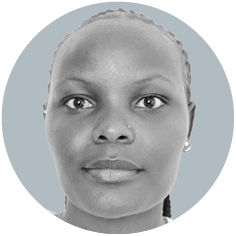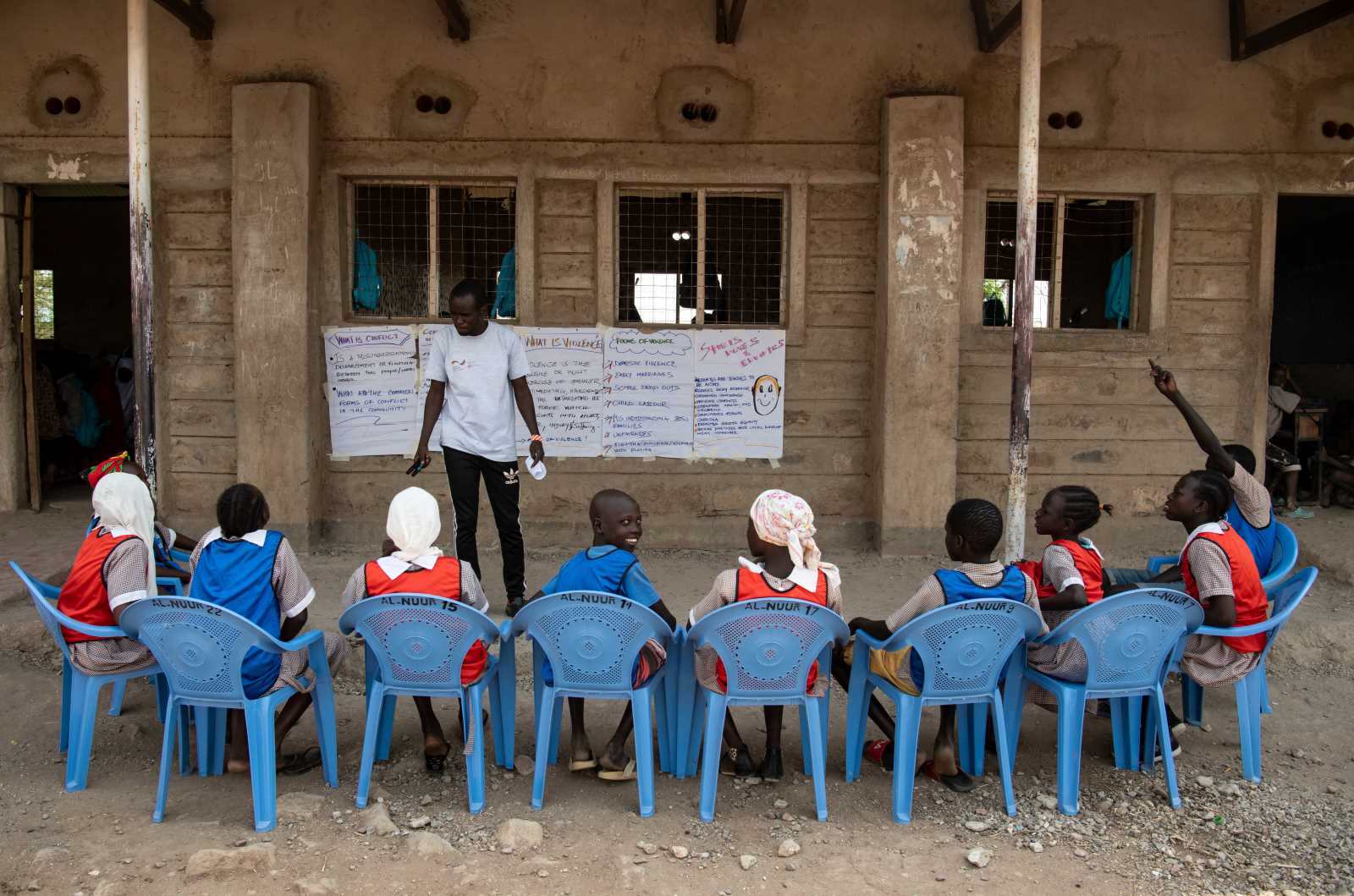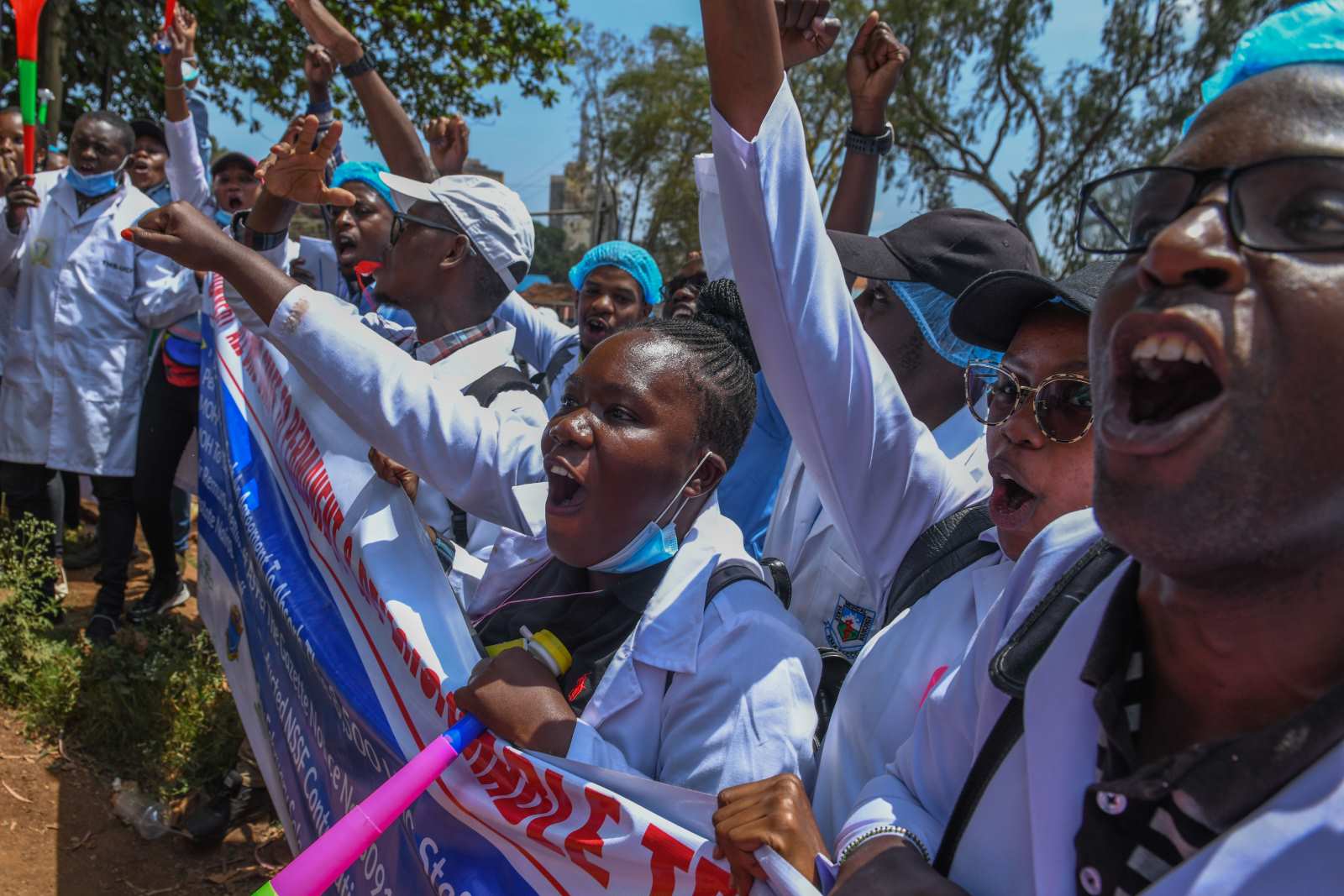Refugee-camp life
Too little for too many

The refugee camp is located in the Kenyan desert and is one of the largest in the world. According to the UN Refugee Agency (UNHCR), it was home to at least 270,135 refugees in 2023. They mainly come from South Sudan, Somalia, Ethiopia and the Democratic Republic of the Congo. Despite the overpopulation, the UNHCR and numerous civil-society organisations are working relentlessly to provide the refugees with medical care.
The UNHCR has set up several health facilities over the years, including smaller health centres and two hospitals. The latter are run by the International Rescue Committee (IRC) and provide all types of medical assistance free of charge to all refugees in possession of legal documents and ID. In addition, the Kakuma Mission Hospital, which serves the host community in the Kakuma area, acts as a referral centre in situations where there are difficulties in providing adequate medical assistance. These services are usually paid for by the UNHCR.
Rose Namoi Wolde lives and works in the camp as a laboratory technician in the main hospital. The South Sudanese explains that she is happy to be able to give something back to her fellow refugees by offering them medical help amidst the various challenges in the camp.
According to Wolde, the health facilities are able to provide basic medical care, which includes treatment for common and recurring diseases, vaccinations and maternal care. “However, life in the camp is anything but easy, and sometimes it is even difficult to meet patients’ basic needs such as food and water.” The high population density also affects the spread of infectious diseases such as cholera and tuberculosis. Dust-related eye problems are another concern.
Wolde adds that the two main hospitals prioritise children, as they are most affected by the living conditions in the camp. Many suffer from illnesses caused by poor nutrition, while others are neglected by their parents. A lot of children in the camp are pale and suffer from underweight or kwashiorkora, a type of malnutrition caused by eating too little protein. Although there are nutrition programmes in the camp, they are not sufficient for all the children in need.
As Wode explains, resources are very limited in all areas due to the large number of people. Finances are tight and there is often a lack of medical equipment and well-trained medical professionals. Despite these challenges, the hospitals usually organise medical workshops to educate the refugees about important health issues and safety measures to prevent the outbreak of diseases in the camp.
Mental health issues
Physical illnesses are not the only health problem that refugees face. The wars and conflicts from which they have fled lead to psychological problems such as trauma or post-traumatic stress for many. But experiences of conflict are not the only psychological burden: it is often overlooked that the sudden change of familiar surroundings and culture and the subsequent culture shock or adjustment difficulties can be an additional cause of mental health problems.
Lynaah Totome is a counsellor and works at the Danish Refugee Council (DRC). The South Sudanese explains that the DRC supports people who have fled conflict, violence and persecution. They offer counselling and support and give refugees a platform to talk about their traumatic experiences. “Mental health problems are often attributed to experiences of conflict. But sometimes they also arise due to frustration. Many people are simply exhausted by camp life – the years of harsh living conditions, isolation in the desert and overcrowding,” says Totome. But despite the need, psychosocial services are limited and have not been fully integrated into the camp’s health system.
Alba Nakuwa is a freelance journalist from South Sudan living in Nairobi, Kenya.
albanakwa@gmail.com











